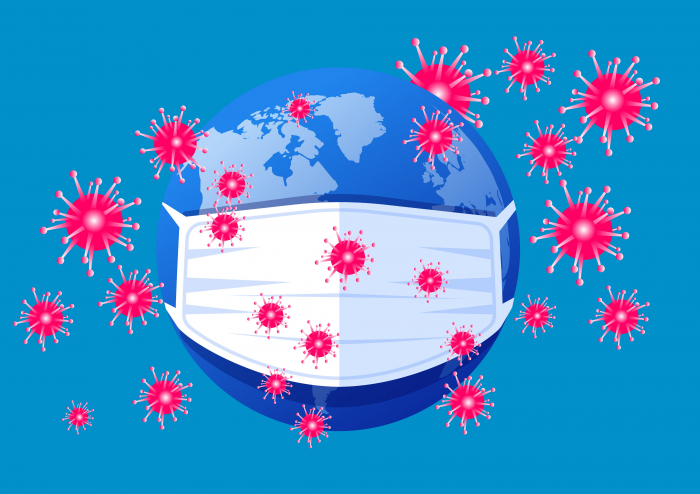Every day, the COVID-19 pandemic costs the world thousands more lives and billions more dollars. The most efficient way to bring this crisis to an end – possibly as early as next year – is with a safe and effective vaccine, manufactured in large quantities and distributed globally. To avoid any unnecessary delays, governments should take this moment, while researchers work to develop the right formula, to prepare the ground for rapid production and broad, equitable deployment.
This is the principle on which the COVID-19 Vaccine Global Access (COVAX) Facility is based. Created by Gavi, the Vaccine Alliance, the World Health Organization, and the Coalition for Epidemic Preparedness Innovations, this innovative platform aims to distribute at least two billion doses of COVID-19 vaccine by the end of 2021.
That many doses – which will be divided equitably among participating countries, regardless of their ability to pay – would cover some 20% of populations in participating countries. It would thus be sufficient to protect high-risk and vulnerable people and frontline health-care workers worldwide. (Additional doses would also be stockpiled, so that any future outbreak could be tackled before it spun out of control.)
As it stands, over 160 vaccine candidates are in preclinical or clinical development. There is no way to know which will pass clinical trials and be licensed (failure rates of vaccines in early development are high). But we can ensure that, by the time one does, an effective framework for manufacture and deployment is in place. To that end, governments must invest in COVAX as soon as possible.
The problem is that governments may feel compelled to eschew cooperation, in favor of negotiating directly with vaccine manufacturers to claim the doses they need. Yes, governments are duty-bound to protect their own citizens above all. But this national approach carries serious risks, beginning with the possibility that a government may back the wrong vaccines.
Even if a government secures enough doses of an effective vaccine for its own population, some of its people – such as those who are immunocompromised and may not be able to be vaccinated – would be left exposed if other countries are unable to obtain enough vaccine. And this leaves aside the moral imperative of ensuring that people are not cut off from lifesaving drugs.
During the 2009 swine flu pandemic, a few countries cornered the vaccine market, leaving the vast majority of the global population with no vaccine at all until the outbreak was effectively over. This scenario must be avoided at all costs during the current crisis, not least because COVID-19 has a much higher infection and mortality rate.
By collaborating with global health agencies through COVAX, governments can ensure that everyone has equal access to COVID-19 vaccines. For countries that have secured bilateral deals with manufacturers, COVAX amounts to an insurance policy, in case they bet on the wrong candidates. For countries that haven’t secured any deals – the vast majority of the world – COVAX is the only way to avoid being pushed to the back of the line.
COVAX ensures that the benefits and risks of vaccine development are broadly shared. With the largest portfolio of vaccine candidates anywhere in the world, it gives participating governments the best odds of receiving a safe and effective vaccine as soon as it becomes available – and ensures that this moment comes much sooner.
When pharmaceutical companies are shouldering all of the financial risks, they will invest in scaling up production only after their vaccine has completed clinical trials and been approved. This approach may make business sense, but it does not make sense in the context of a rapidly moving global pandemic.
COVAX employs a radically different approach. In addition to using “push” financing – direct investment in research, development, and manufacturing – it uses “pull” financing, in the form of advance purchase commitments for large numbers of doses upon licensure. This provides powerful incentives for the private sector to support urgent vaccine development.
Moreover, COVAX pools government resources to fund scaling up the most promising candidates even before clinical trials are completed. That way, when approval comes, large quantities of vaccine doses will be ready to go. Already, WHO is working with a range of stakeholders, including member states and civil-society organizations, to develop and implement a mechanism for equitable and fair allocation of vaccine doses, once they become available.
COVAX will support only vaccine candidates that are developed in accordance with the highest possible safety standards. By working with experts around the world to develop target product profiles, share best-practice testing models, facilitate multi-country clinical trials, and promote regulatory harmonization, COVAX will establish a new benchmark for rapid, safe, and efficacious vaccine development and delivery.
We cannot afford to leave our economies on their current path for much longer. As global GDP shrinks – the International Monetary Fund and the World Bank forecast about a 5% contraction in 2020 – poverty and hunger are rising sharply. With the world economy losing more than $10 billion each day, shortening the pandemic by even a few days would more than offset the costs of COVAX. Global collaboration – where risks and benefits are shared equally – has never been a better value proposition.
Seth Berkley is CEO of Gavi, the Vaccine Alliance.
Richard Hatchett is CEO of the Coalition for Epidemic Preparedness Innovations.
Soumya Swaminathan is Chief Scientist of the World Health Organization.
Read the original article on project-sydnicate.org.
More about: pandemic
















































